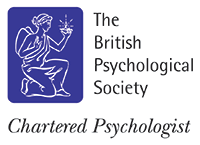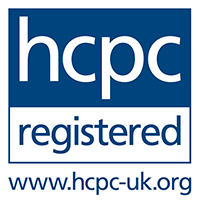 Expert witnesses play a critical role in modern legal systems, providing specialised knowledge to help judges and juries navigate complex evidence and reach informed decisions. The integrity of expert testimony is underpinned by two fundamental qualities:
Expert witnesses play a critical role in modern legal systems, providing specialised knowledge to help judges and juries navigate complex evidence and reach informed decisions. The integrity of expert testimony is underpinned by two fundamental qualities:
- Credibility;
- Independence.
When these elements are balanced effectively, expert witnesses serve as powerful assets to the justice system, aiding courts in making accurate, fair, and unbiased rulings.
However, without these attributes, expert testimony can undermine the legal process and compromise the pursuit of justice. Let’s explore the importance of expert witness credibility and independence, and how third-party providers, such as Psychology Direct, can ensure the integrity of expert testimony in legal proceedings.
The Central Role of Expert Credibility
In legal contexts, the credibility of an expert witness is a key determinant of how persuasive and reliable their testimony is. Credibility encompasses the expert’s qualifications, adherence to professional standards, and their ability to communicate technical or specialised knowledge in a clear, comprehensible manner.
 The more credible an expert is, the more likely their testimony will hold weight in court, providing a sound foundation for judicial decisions. And this is not merely about having impressive qualifications. While expertise is certainly important, it is equally crucial for expert witnesses to remain objective and transparent in their analysis. Ensuring that one’s testimony adheres to scientific rigour, carefully considering all available evidence, and acknowledging the limitations of their analyses.
The more credible an expert is, the more likely their testimony will hold weight in court, providing a sound foundation for judicial decisions. And this is not merely about having impressive qualifications. While expertise is certainly important, it is equally crucial for expert witnesses to remain objective and transparent in their analysis. Ensuring that one’s testimony adheres to scientific rigour, carefully considering all available evidence, and acknowledging the limitations of their analyses.
The performance of expert witnesses under cross-examination is often a litmus test for their credibility. As such, experts must:
- Remain composed
- Be factual,
- Stay consistent when questioned
- Reinforce their value in court
On the other hand, those who become defensive, contradictory, or speculative risk losing the confidence of both the legal teams and the decision-makers.
Therefore, courts and legal professionals must thoroughly evaluate the qualifications and abilities of experts to ensure their testimony can withstand scrutiny.
The Imperative of Expert Independence
Equally important to the integrity of expert testimony is the expert’s independence. This refers to the absence of bias or any influence that may compromise the impartiality of the expert’s analysis.
 Independent experts are trusted to present their opinions based solely on the evidence and their professional expertise, not on the demands or preferences of the party that retained them.
Independent experts are trusted to present their opinions based solely on the evidence and their professional expertise, not on the demands or preferences of the party that retained them.
Legal scholars have long argued that expert witnesses must remain free from any pressure or bias, whether explicit or implicit. And this includes being cautious about how they are engaged, compensated, or briefed on the case. An expert who lacks independence may unintentionally distort their analysis to align with the legal strategy of the party that hired them. Such biases can lead to flawed testimony, misleading the court and potentially resulting in unjust outcomes.
And more, an expert witness who is demonstrably neutral, approaching their role as a third-party arbiter of the facts, is far more likely to command respect from both the court and opposing legal teams. This neutrality ensures that their testimony is taken seriously and aids in the objective resolution of legal disputes.
Experts who serve the evidence, rather than the interests of either side, fulfil their duty to the court and uphold the integrity of the judicial process.
The Role of Third-Party Providers in Upholding Integrity
 Ensuring that expert witnesses maintain both credibility and independence can be challenging for legal professionals, particularly in complex cases where specialised knowledge is required. This is where third-party providers, such as ourselves at Psychology Direct, offer invaluable support.
Ensuring that expert witnesses maintain both credibility and independence can be challenging for legal professionals, particularly in complex cases where specialised knowledge is required. This is where third-party providers, such as ourselves at Psychology Direct, offer invaluable support.
As a neutral intermediary, our services connect legal teams with a wide range of vetted experts who possess the necessary qualifications and expertise while ensuring that these experts remain independent from the legal strategies of either side.
Psychology Direct, provides access to a diverse network of specialists, ranging from clinical psychologists to medical experts. By acting as a buffer between the legal teams and the experts, third-party providers ensure that the experts remain impartial, focused solely on delivering unbiased, fact-based testimony. And this independence is essential in safeguarding the objectivity and credibility of expert witnesses.
Moreover,we also perform rigorous vetting processes to ensure that the experts we offer will always have the relevant qualifications as well as the ability to present their findings effectively in court. This includes evaluating an expert’s ability to clearly explain complex concepts, remain objective under cross-examination, and maintain the highest professional standards in their analysis.
By providing legal professionals with experts who are both credible and independent, our third-party service helps uphold the integrity of the legal process.
Conclusion
The integrity of expert testimony in legal cases hinges on the delicate balance between credibility and independence. Expert witnesses must be highly qualified, transparent, and scientifically rigorous in their analysis, while also remaining free from any influences that may bias their testimony.
And that is where third-party providers like ourselves play a crucial role in ensuring this balance is maintained – offering a wide range of qualified experts and acting as neutral intermediaries. Such services ensure that expert witnesses remain impartial and credible, providing reliable testimonies that will ensure fair and informed decisions.
In an increasingly complex legal landscape, the importance of expert witness integrity cannot be overstated – especially considering the growing demand of specialised knowledge.






